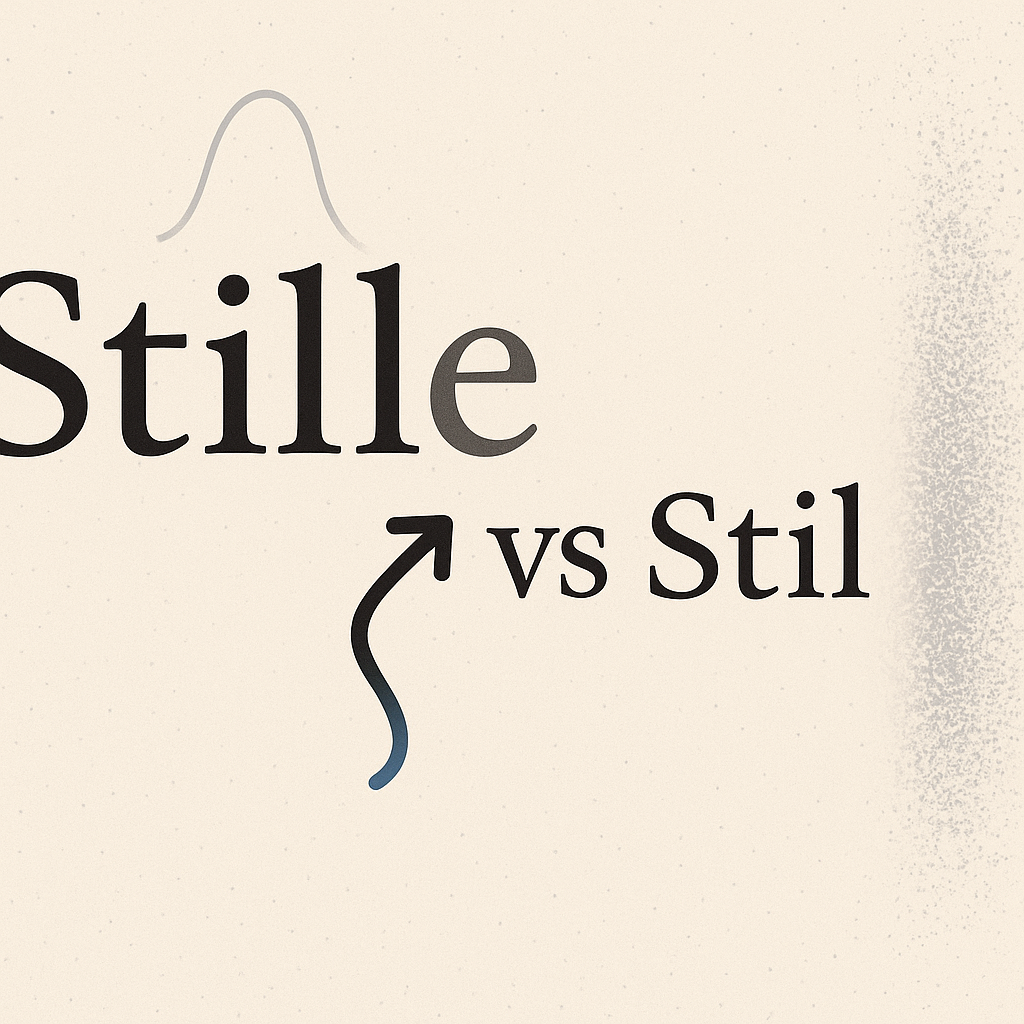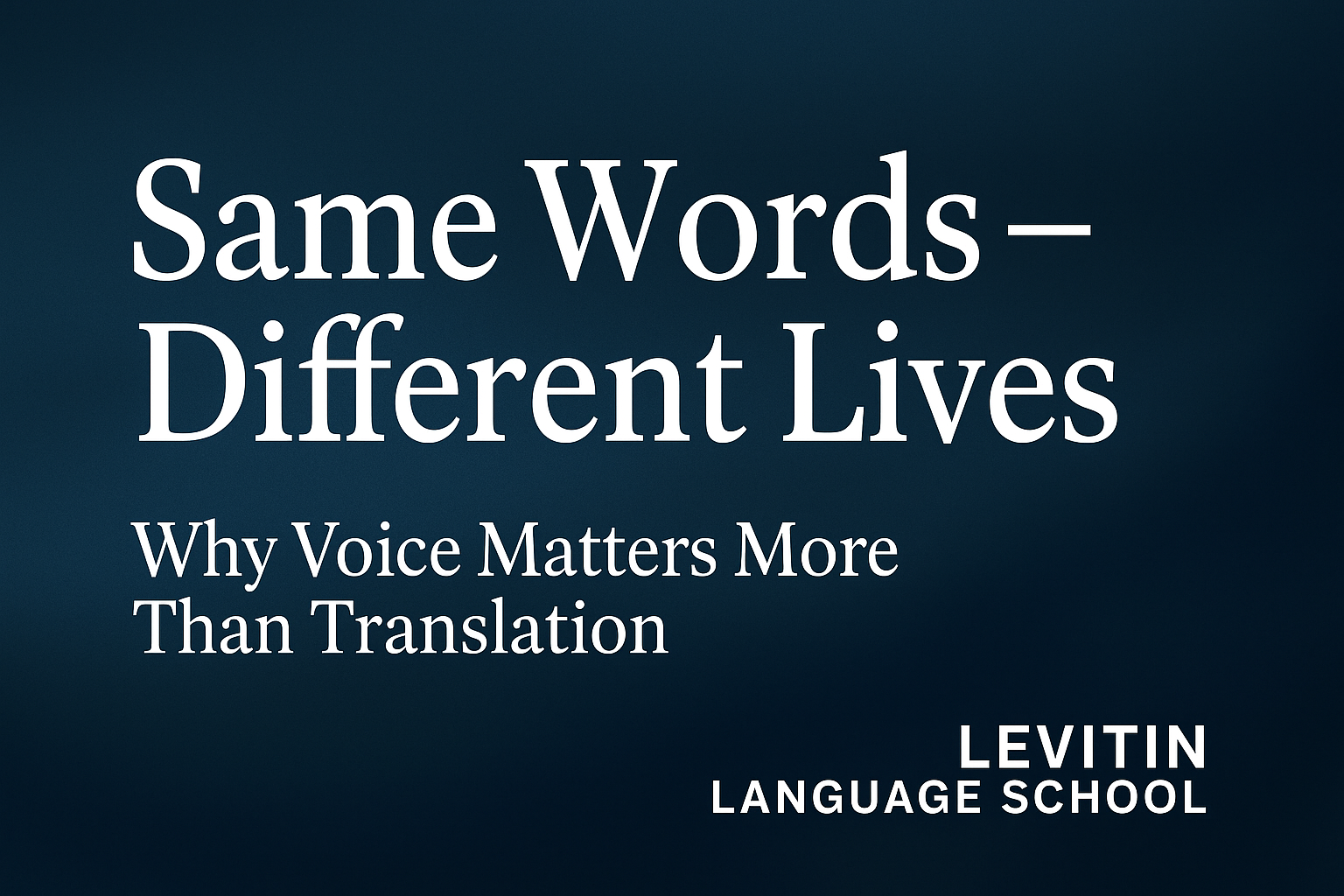What “Shtil” and “Wind of Change” Reveal About Language, Culture, and Emotion
What if silence means something different in your language than in mine? What if the word “change” carries fear in one tongue and hope in another? And what happens when you try to translate not just a song, but the soul behind it?
In this article, we look at two iconic rock songs — “Shtil” by Russian heavy metal band Aria (with Udo Dirkschneider) and “Wind of Change” by German band Scorpions. Though both are poetic and deeply emotional, they present entirely different visions of what it means to face change. More than that, they show us how language and culture shape meaning in ways that no dictionary ever can.
The Wind Doesn’t Blow the Same Way Everywhere
At first glance, both songs deal with transformation.
- In “Wind of Change”, change is a breeze that brings unity, hope, and freedom.
- In “Shtil”, stillness is not peace but a deadly pause, a silence heavy with dread.
Yet the difference is deeper than tone. It lies in how each language and culture imagines what it means to change, and what it means to be alone, or together, in that process.
Aria’s “Shtil”: When Silence Screams
The Russian word штиль (“shtil”) refers to a dead calm at sea — no wind, no movement, nothing but the vast stillness of water and sky. In Aria’s song, this silence is not comforting. It’s oppressive.
“Штиль — ветер молчит”
The lyrics tell the story of sailors trapped at sea, facing hunger and the cruel decision to sacrifice one of their own. It’s a metaphor for societal pressure, survival, and how easily the voice of the individual is drowned out.
The silence here is not peace. It’s a warning, a pause before collapse. It’s what happens when no one dares to speak up.
How Do You Translate “Shtil”?
There is no perfect English equivalent. Calm? Stillness? Silence? None carry the fatal pressure the Russian word holds. That’s the translator’s dilemma: how do you express a word that isn’t just about weather, but about fear?
Scorpions’ “Wind of Change”: Singing the Future
Written around the fall of the Berlin Wall, “Wind of Change” became an anthem of freedom. The whistled melody, the hopeful lyrics, and the vision of East meeting West gave voice to a moment when history seemed to open.
“Take me to the magic of the moment / On a glory night…”
The wind here is gentle, but filled with energy. It doesn’t destroy — it invites. It carries you forward.
Interestingly, in the Russian version sung by Scorpions themselves, the chorus is left in English. Some lines are adapted, but the core metaphor remains untranslatable. Why? Because change as experienced in the West is often a personal journey. In Russian culture, it has often meant collapse.
Two Songs, Two Cultures, Two Codes
- Aria’s silence: collective survival, ethical compromise, inner scream.
- Scorpions’ wind: individual hope, peaceful revolution, soft power.
Both songs deal with transition. But in Russian, the silence is thick with history. In English, the wind carries a melody.
You can’t just swap words. You have to rebuild the meaning.
That’s what translation is. And that’s what learning a language truly means.
What This Means for Language Learners
When we teach students a new language, we don’t just teach them grammar and vocabulary. We help them:
- find their voice in another culture
- express pain or joy differently
- understand silence differently
Every word is a cultural choice. And every student is not just translating sentences — they’re translating themselves.
So the next time someone asks how to say “Shtil” in English, maybe the answer is:
You don’t. You help them feel it.
What Comes Next
Next in this series: “A Sea of Silence: When ‘Calm’ Isn’t Peaceful” — exploring how different cultures and languages understand silence, stillness, and the spaces between words.
🖋 Author’s Column — Tymur Levitin on Language, Meaning, and Respect
Founder, director, and lead teacher of Levitin Language School / Start Language School by Tymur Levitin.
More articles by Tymur:
🔗 Official blog
🔗 U.S. blog
🔄 Read more from this series:
- “Girl. Baby. Detka.” One Word, Two Worlds
🔗 Read article - Why We Don’t Promise You’ll Learn English in 30 Days
🔗 Read article - Stop Memorizing. Start Thinking.
🔗 Read article - Grammar Is Not Math
🔗 Read article - What’s Outside the Frame: How German Word Order Reveals What You Really Mean
🔗 Read article
📌 This article is part of the series:
“The Code of Silence: Self and Society in Songs and Language”
Next article: “A Sea of Silence: When ‘Calm’ Isn’t Peaceful” — coming soon.
© Tymur Levitin — Founder and Lead Teacher at Levitin Language School / Start Language School by Tymur Levitin. All rights reserved.
























